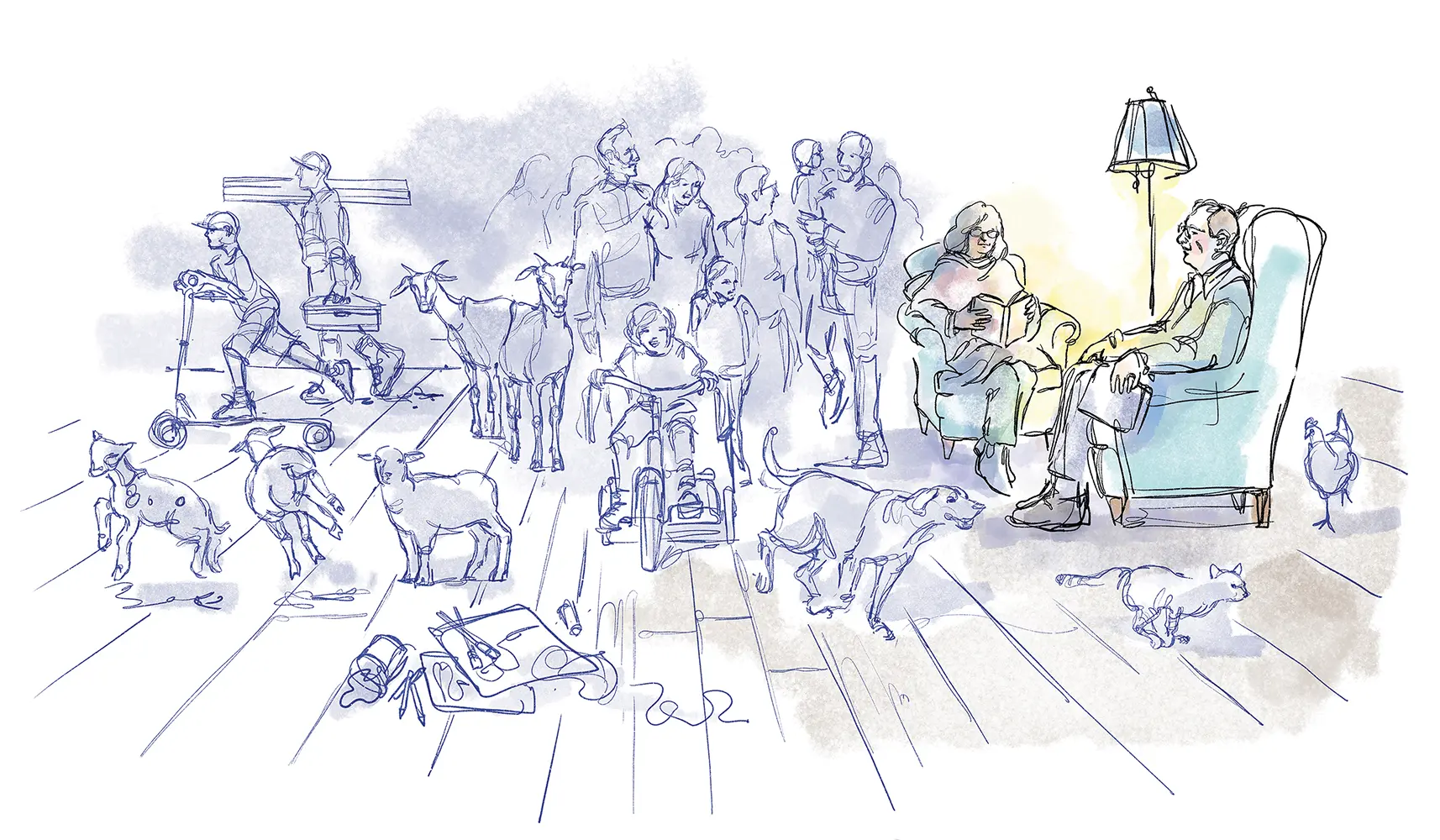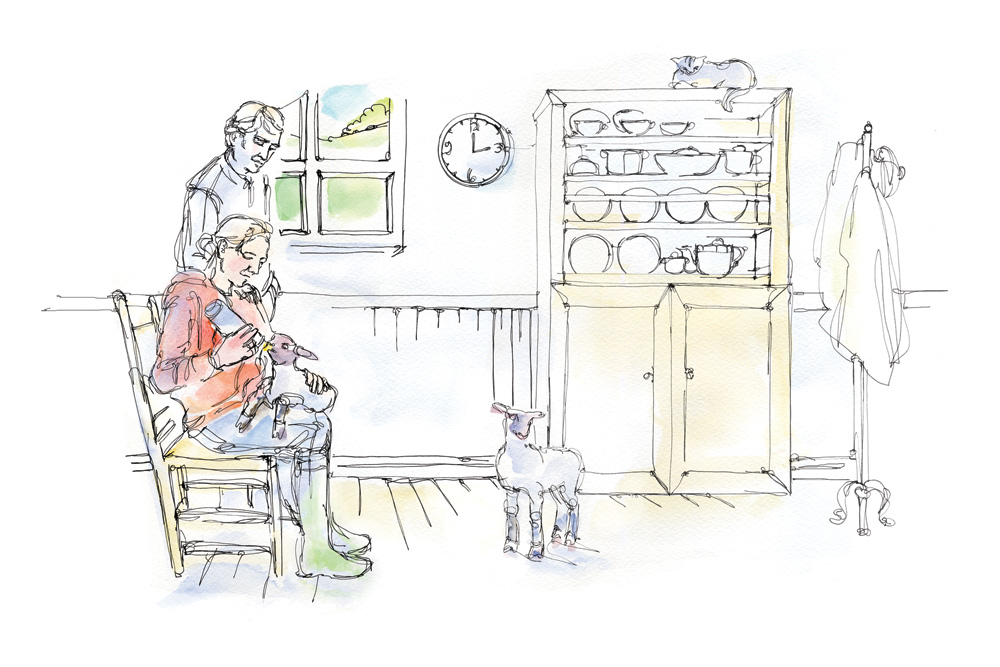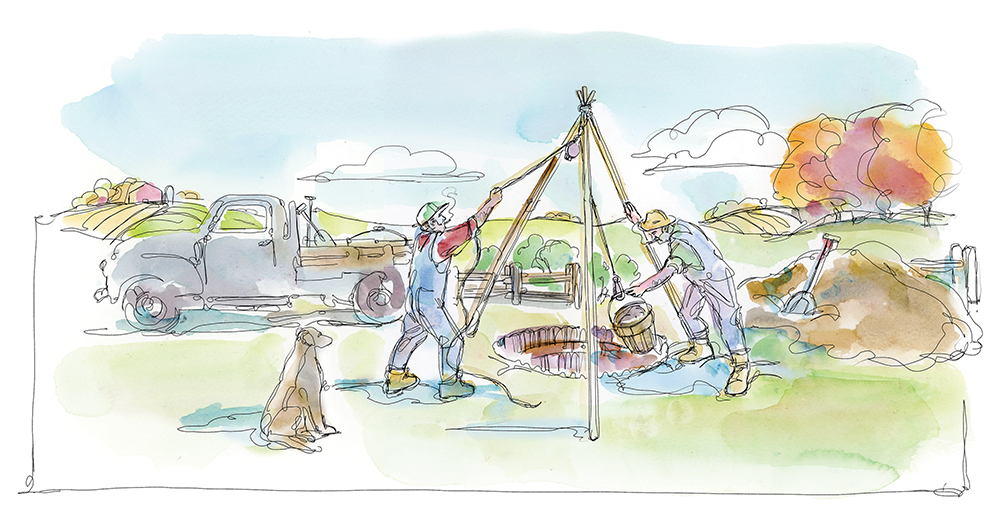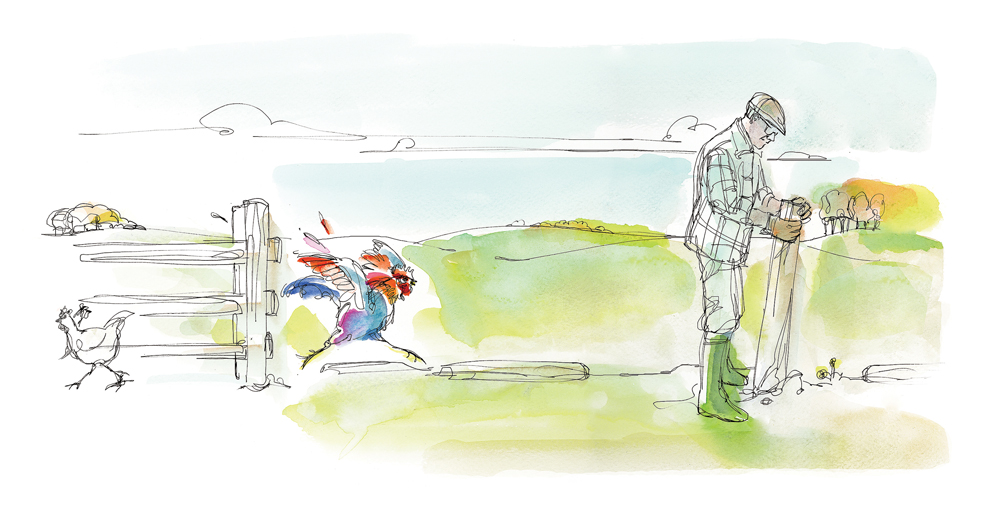The law of entropy applies especially to houses, but I’m comforted that at least one piece of mine may outlast me.
by Dan Needles // Illustration by Shelagh Armstrong-Hodgson

When my wife and I moved here to live full-time on our country property, the farmer next door, Hughie McKee, came over to inspect the foundation that the backhoe had just dug to prepare for an addition to our century farmhouse, a rickety old frame building that I had first started patching up 10 years earlier, in 1978.
“That’s a big hole, Danny,” he said. “A beautiful hole. Why don’t you fill half of it in?”
It was good advice, but I was young, I was on a farm, and we hadn’t begun to talk about our ecological footprint in those days. Hughie already understood that concept very well because he was born in these windy hills and had spent many winters here. He looked skeptically at the old house.
“I should have burned this place down when I had the chance,” he said. “I didn’t know it was you that was going to buy it. Now you’re stuck with it.”
Shortly after the addition was finished, I won a $10,000 writing prize and the local paper called to ask what I planned to do with the money. I didn’t want to sound like a flake, so I said I would put it away for the children’s education. That night, a storm whipped in off the lake and blew the furnace chimney off the roof of the old part of the house. The fuel company came out the next day and reported the chimney was rotted out all the way down to the furnace and needed to be replaced. Then they discovered holes in the fire pot and decided I needed a new furnace. While the guys were installing that, there was a flash in the panel and they asked me, “Did you have a heat pump?”
By the end of the week, my cash prize was gone, except for a few hundred dollars that I spent on tickets to the award dinner for friends and family.
The house has cleaned me out regularly since then. Recently, I replaced the washer and dryer, water heater, water pump and pressure tank, water softener, iron filter, dishwasher, freezers, brick chimney and several light fixtures—everything had happened to hit the 25-year mark all at once and went to the scrapyard. Then a real estate friend came by for a visit and casually described my house as “a teardown.” It came as a shock because a lot of it seems pretty new to me. However, the law of entropy dictates that everything in the universe is cooling off, slowing down and wearing out, especially houses. They deteriorate just as fast as a car or any other appliance. At the most, a house serves for a generation before it suddenly develops wrinkles and requires a makeover or worse.
My great-grandmother built one of the largest houses in the city of Toronto in the 1920s, with 120 rooms, a library, a swimming pool, a theatre, a gymnasium and a great hall. She lived in it for about five years until she found it was just too much to look after. Then she did the sensible thing and gave it away to Crescent School for Boys. She moved into the Selby Hotel on Sherbourne Street for her final years, and the house itself was knocked down in 1970 when the school moved to make room for five condo towers.
The only visible feature in my house that dates from first construction is the old pine floor in the kitchen, installed by Peter Currie when he moved his wife out of the drafty old log cabin in the orchard and built her a new house in 1890. The floor was still in reasonably good shape when I first arrived, even though the house had been abandoned for decades at that point and the roof leaked. But since then, children, dogs, orphan lambs and goats, and a thousand visitors have pummelled the pine floor without mercy. My wife and I know it should be replaced, but we can’t agree what comes next, and neither of us wants to give up the history and the hoofprints that record our life here. So it stays put while we keep mopping, hammering square nails back down and picking splinters out of each
other’s feet.
I find it comforting to know that at least one little piece of this house has stubbornly resisted the laws of entropy. The floor may not last forever, but there’s a small chance it will last longer than I will.
Playwright and humorist Dan Needles lives on a small farm in Nottawa. His latest book, Finding Larkspur: A Return to Village Life, was published by Douglas & McIntyre.














